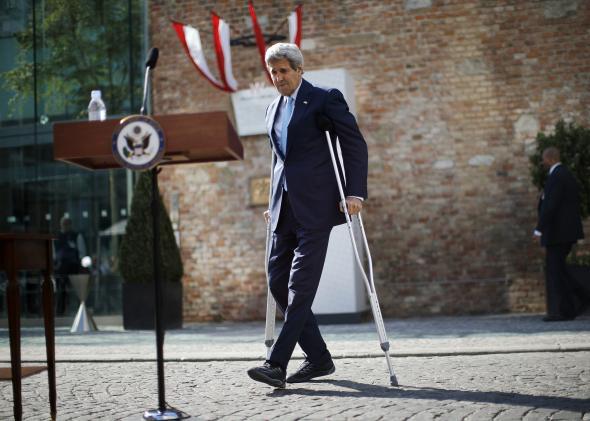Talks between Iran and several world powers about an agreement over Iran’s nuclear program have been extended a second time, until Friday, the United States announced on Tuesday. This comes after an original extension on June 30, when the completion of a potential final nuclear deal was pushed back to July 7. The U.S. State Department said, at the time of the first extension, that the new deadline would “allow more time for negotiations to reach a long-term solution.”
Secretary of State John Kerry arrived in Vienna in late June to help broker Iran’s deal. The New York Times reports that the Obama administration originally hoped to complete a final deal by the end of that month, so that the accord could be submitted to Congress for a 30-day review. In light of the double delays on the agreement, the duration of the review period will likely increase. As the talks continue, diplomats are extending through Friday an interim nuclear deal called the Joint Plan of Action, which temporarily freezes much of Iran’s nuclear program.
“We’ve made substantial progress in every area, but this work is highly technical and high stakes for all of the countries involved,” said State Department official Marie Harf in a statement. “We’re frankly more concerned about the quality of the deal than we are about the clock, though we also know that difficult decisions won’t get any easier with time—that is why we are continuing to negotiate.”
Since they were announced, the nuclear talks have seen their fair share of tumultuous debate. Unresolved issues in the talks include disagreement over the timeline for removing economic sanctions on Iran and the proper steps to addressing suspicions about Iran’s previous nuclear activities. Russian Foreign Minister Sergei Lavrov was quoted noting that a weapons embargo on Iran remains the main obstacle to a final deal.
The six world powers that are currently in negotiations with Iran are the U.S., France, Germany, Britain, Russia, and China.
